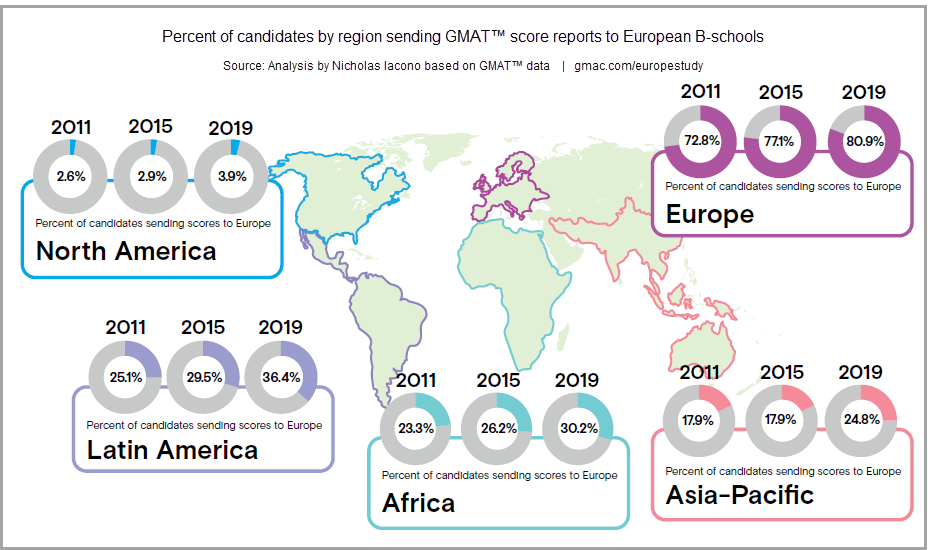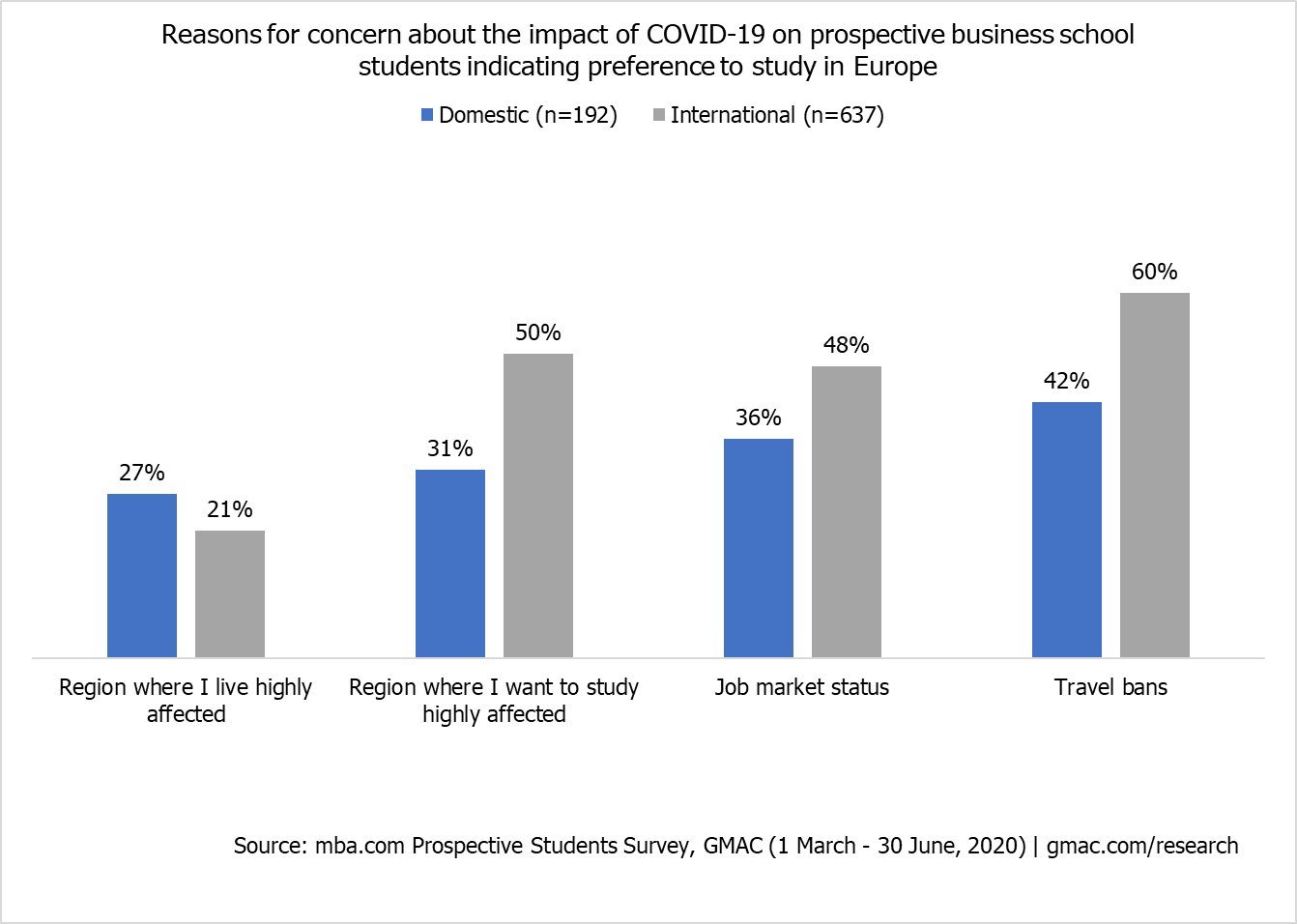European business schools have been a beneficiary of higher education reforms and the increasing pace of globalization. GMAT test-taker data shows sustained growth in the proportion of candidates considering pursuing graduate management education (GME) in Europe. As the impact of COVID-19 intensifies, how are prospective students adapting their choices, and what could be the implications for the communication strategies of European business schools?

2019 marked the 20th Anniversary of the Bologna Declaration, which has been transformative in increasing compatibility and comparability of the systems of higher education in Europe and accelerating the mobility of learners. Specifically, master’s degrees in Europe gained momentum with the launch of English-taught programs. OECD noted in its 2012 report, “…an increasing number of institutions in non-English-speaking countries now offer courses in English to overcome their linguistic disadvantage in attracting foreign students.”
This Bologna reform process intersected with the changing nature of the global economy and helped establish business and management as one of the most preferred fields of study at the master’s level. According to Eurostat, 1,667,134 students graduated in 2018 in the EU 28 countries (including the United Kingdom) with a master's level degree. One out of four graduates with a master's level degree was in the field of “business, administration, and law”—making it the leading field of study among ten broad categories.
Many European business schools benefited from the mobility of learners from within Europe and overseas. An analysis of GMAT™ test-taker data shows sustained growth in the proportion of prospective candidates considering studies in Europe. Emerging countries in Africa, Asia-Pacific, and Latin America drove much of this growth. For example, the proportion of candidates from Africa sending reports to Europe increased from 23.3 percent in TY 2011 to 30.2 percent in TY 2019 (the testing year runs from 1 July 2018 to 30 June 2019).

However, the onset of the COVID-19 pandemic is shifting the global mobility patterns and influencing the choice preferences of prospective students considering studies in Europe. To gauge the impact of COVID-19 on the journey of prospective business school students, GMAC has been tracking and reporting the findings based on the mba.com Prospective Students Survey. The results reported below are based on a subset of survey respondents who indicated a preference to study in Europe. A total of 829 prospective business school students responded to the survey between 1 March and 30 June 2020. This included 637 international candidates based on their citizenship and 192 domestic candidates.
When asked about the impact of COVID-19 on their plans to pursue a graduate degree, 41 percent of the respondents reported that they are extremely concerned or very concerned (on a five-point scale). By looking from the lens of citizenship, 42 percent of international candidates and 36 percent of domestic candidates reported that they are extremely concerned or very concerned. This suggests that overall concern levels for domestic and international candidates are only slightly different. However, this comparability in the level of concerns masks the differences related to the underlying reasons for concerns about the impact of COVID-19 on prospective students' plans to pursue graduate management education.

Unsurprisingly, travel bans are among the top reason for the concerns, and they affect international candidates (60%) more than domestic candidates (42%) due to visa and related reasons. Likewise, international candidates (48%) are more concerned about job market status than domestic candidates (36%) due to higher investments in education and expectations for career advancement.
The contrast between domestic and international candidates becomes more apparent when comparing the perception of the impact of COVID-19 on Europe as a study destination. A similar proportion of domestic (27%) and international candidates (21%) identified as a concern that the region where they live is highly affected due to the impact of COVID-19. However, a significant gap appears in the perception of how the region where they want to study is affected (Europe). Nearly half of all international candidates reported that they were concerned about the impact of Coronavirus on the region where they want to study (Europe) as compared to 31 percent of domestic candidates.
In sum, while the overall concern levels for domestic and international candidates are high, it is essential to recognize the differences in the reasons for their concerns. One direct implication is that business schools need to communicate and address the diverse concerns of prospective students related to the visa, travel, and job markets. There is even more intentional effort required to address the perception among international candidates about how severely Europe is affected by COVID-19. This would help international candidates overcome their higher level of concern about Europe as a destination in the context of the Coronavirus.
***
Related posts on the impact of COVID-19 on GME candidates:
- How Are Women Business School Candidates Responding to the Impact of COVID-19?
- Would Prospective Business School Students Accept and Enroll in 2020 if Programs Start with Online Learning?
- COVID-19 Intensifies Job Market Concerns for Prospective Business School Students
***
- This blog is an abridged version of posts initially published by EFMD--“Impact of COVID-19 on Prospective Students Considering European Business Schools,” and “The Growth Drivers of Master’s Level Business and Management Degrees in Europe.”
